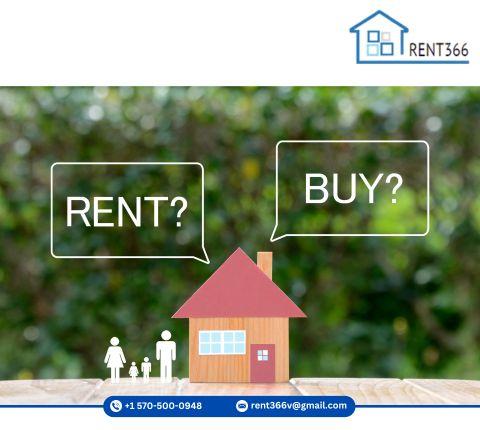Renting vs. Buying in Hampden County, MA
Renting vs. Buying in Hampden County, MA: Which is Better for You?
Making the Decision: Renting vs. Buying
Choosing between renting and buying a home is one of the most significant financial decisions you’ll ever make. For residents of Hampden County, MA, both options have their pros and cons, and the right choice depends on your lifestyle, financial situation, and long-term plans. In this article, we’ll take a closer look at the benefits and drawbacks of each option to help you make the best decision.
Benefits of Renting in Hampden County
Renting offers flexibility and fewer long-term financial commitments, which makes it an attractive option for many residents. In Hampden County, renters benefit from a variety of housing options, from apartments in Springfield to single-family homes in more suburban areas.
- Flexibility: Renting allows you to move more easily, making it an excellent choice for people who might relocate for work or prefer not to be tied down to one location.
- Lower upfront costs: Renting typically requires a security deposit and the first month's rent, which is much more affordable than a down payment on a home.
- Maintenance-free living: One of the perks of renting is that maintenance issues are the landlord’s responsibility, saving you time and money.
Drawbacks of Renting
While renting offers flexibility, there are a few disadvantages to consider.
- No equity: Rent payments don’t build equity. At the end of your lease, you have no ownership stake in the property.
- Rent increases: Landlords can raise rent when leases renew, and you may have limited control over how much your rent costs in the future.
Benefits of Buying a Home in Hampden County
Homeownership offers stability and the potential for long-term financial gains, especially in growing markets like Hampden County. Buying a home means investing in a property you can customize and eventually own outright.
- Building equity: As you pay down your mortgage, you build equity, which can be a significant financial asset.
- Stability: Owning a home means your housing costs are more predictable, especially with a fixed-rate mortgage, and you won’t have to worry about landlords raising the rent.
- Tax benefits: Homeowners can take advantage of tax deductions, such as mortgage interest and property tax deductions, which can save you money come tax season.
- Customization: Homeownership gives you the freedom to make any changes you want, from painting walls to renovating spaces, without needing a landlord’s approval.
Drawbacks of Buying
Buying a home is a long-term commitment, and there are challenges to consider before taking the leap.
- High upfront costs: Between the down payment, closing costs, and maintenance expenses, buying a home requires a larger financial commitment upfront than renting.
- Responsibility for maintenance: As a homeowner, you’re responsible for all repairs and maintenance, which can become costly.
- Less flexibility: If you decide to move, selling a home can take time and may involve costs, such as real estate agent commissions and closing fees.
Making the Choice: Renting or Buying?
There’s no one-size-fits-all answer to whether renting or buying is better for you. It depends on your financial situation, lifestyle, and future plans. If you value flexibility, lower upfront costs, and maintenance-free living, renting may be the best choice. However, if you’re ready to settle down, want to build equity, and are financially prepared for the costs of homeownership, buying a home could be the better option.
Before making your decision, consider factors such as your job stability, how long you plan to stay in the area, and your financial readiness to cover the costs of either option.
Contact Us for More Information

Comments
There are no comments yet
Leave a Comment